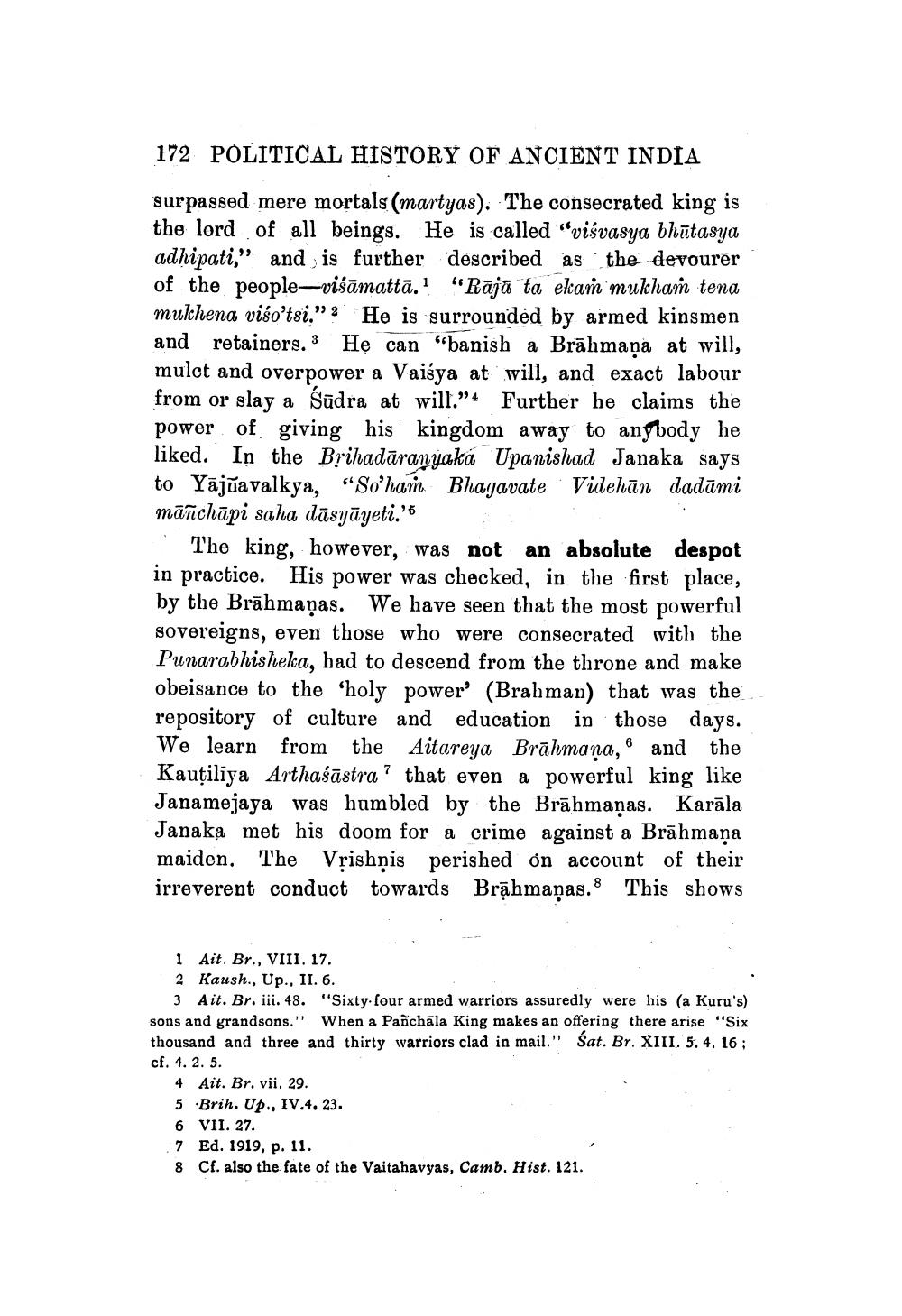________________
172 POLITICAL HISTORY OF ANCIENT INDIA surpassed mere mortals (martyas). The consecrated king is the lord of all beings. He is called "visvasya bhūtasya adhipati," and is further described as the devourer of the people—visāmattā. ! "Rājā ta ekaṁ mukham tena mukhena viso’tsi.”? He is surrounded by armed kinsmen and retainers. 3 He can "banish a Brāhmaṇa at will, mulot and overpower a Vaisya at will, and exact labour from or slay a Śūdra at will." 4 Further he claims the power of giving his kingdom away to anybody he liked. In the Brihadāranyaká Upanishad Janaka says to Yājõavalkya, “So'han Bhagavate Videhān dadāmi māñchāpi saha dāsyāyeti.'
The king, however, was not an absolute despot in practice. His power was checked, in the first place, by the Brāhmanas. We have seen that the most powerful sovereigns, even those who were consecrated with the Punarabhisheka, had to descend from the throne and make obeisance to the holy power' (Brahman) that was the repository of culture and education in those days. We learn from the Aitareya Brāhmaṇa, 6 and the Kauţiliya Arthaśāstra ? that even a powerful king like Janamejaya was humbled by the Brāhmaṇas. Karāla Janaka met his doom for a crime against a Brāhmaṇa maiden. The Vrishộis perished on account of their irreverent conduct towards Brāhmaṇas. This shows
1 Ait. Br., VIII. 17. 2 Kaush., Up., II. 6.
3 Ait. Br. iii. 48. "Sixty four armed warriors assuredly were his (a Kuru's) sons and grandsons." When a Panchāla King makes an offering there arise "Six thousand and three and thirty warriors clad in mail." Sat. Br. XIII. 5. 4. 16; cf. 4. 2. 5.
4 Ait. Br. vii, 29. 5 Brih. Up., IV.4. 23. 6 VII. 27. 7 Ed. 1919, p. 11. 8 Cf. also the fate of the Vaitahavyas, Camb. Hist. 121.




